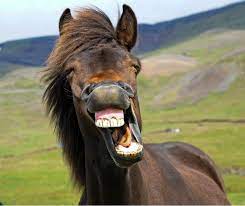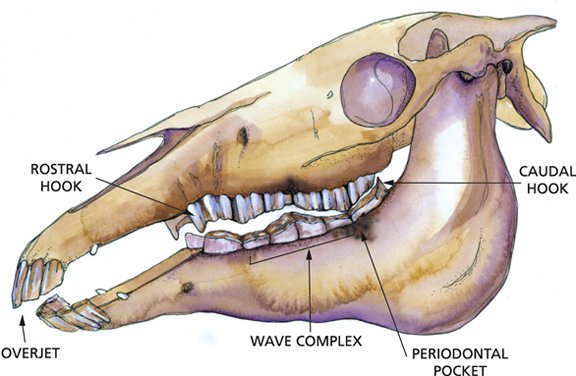Equine Dentistry - Seniors High Risk
- Cougar Mountain Stables
- Dec 13, 2023
- 2 min read
Horses' teeth play a crucial role in their overall health and well-being. Unlike humans, horses have hypsodont teeth, which means their teeth continuously erupt throughout their lives to compensate for the wear caused by grinding and chewing on fibrous plant material. Proper dental care is essential to ensure a horse's teeth remain in good condition, allowing them to graze, chew, and digest their food effectively.
Regular dental check-ups and maintenance are vital for horses because their teeth can develop issues such as sharp points, uneven wear, or dental abnormalities over time. Some horses may require dental attention every six months, while others can go up to a year between dental visits, depending on factors like age, diet, and overall health.
As horses age, the grinding surface of their teeth can wear down unevenly, creating points or hooks that can cause discomfort and hinder proper chewing. Regular dental examinations by a qualified veterinarian or equine dental specialist are crucial to identifying and addressing these issues promptly.
The grinding surface, or occlusal surface, of a horse's teeth is critical for breaking down food into smaller particles, aiding in proper digestion. When horses are unable to chew their food effectively due to dental problems, it can lead to a reduction in nutrient intake. This deficiency can have cascading effects on the horse's overall health, potentially causing weight loss, poor coat condition, and decreased energy levels.
One significant concern associated with dental issues in horses is the potential for impaction, which occurs when the horse cannot adequately break down its food into small, digestible particles. Impaction can lead to digestive problems and, in severe cases, result in colic, a painful and potentially life-threatening condition.
Regular dental care involves addressing issues such as sharp enamel points, malocclusions, and irregular wear patterns. Floating, a dental procedure where the veterinarian or dental specialist files down sharp points or uneven surfaces, is a common practice to ensure a horse's teeth remain in proper alignment.
Horse owners should be proactive in scheduling regular dental check-ups and addressing any signs of dental discomfort or difficulty in chewing. By doing so, they can contribute to their horse's overall health, preventing issues that could impact the horse's ability to consume and digest food effectively, ultimately safeguarding against potential complications such as colic and promoting a long and healthy life for their equine companions.










Comments